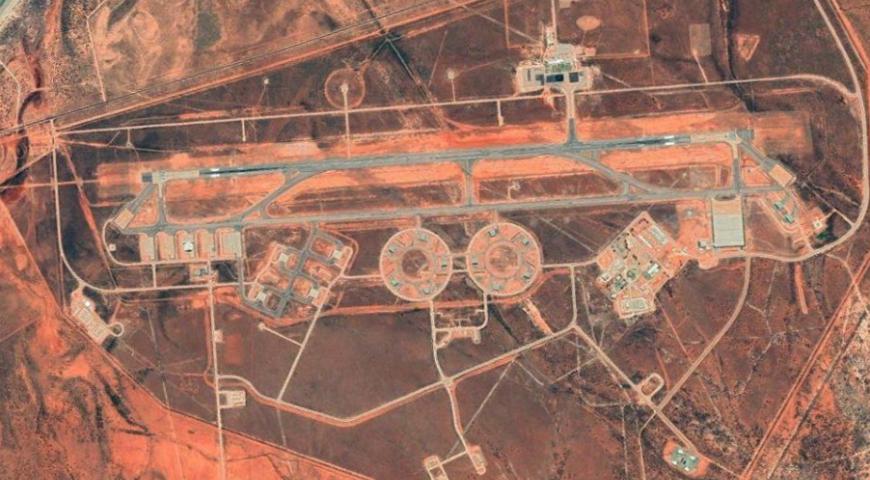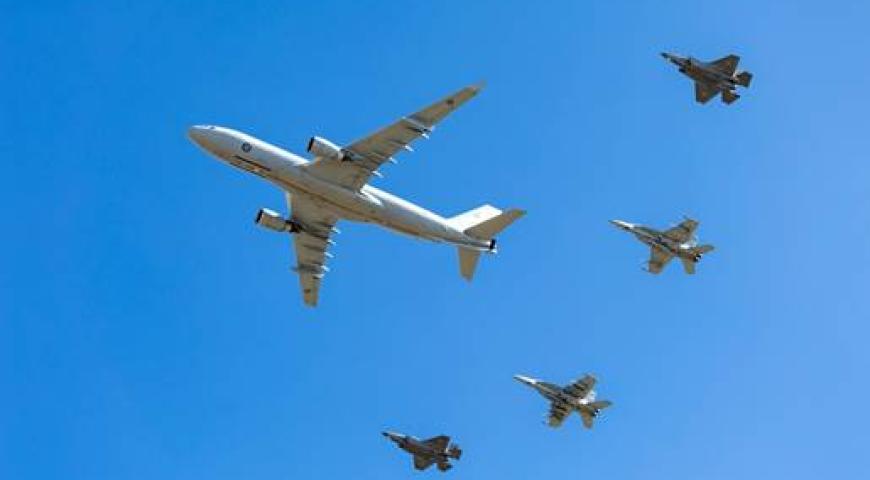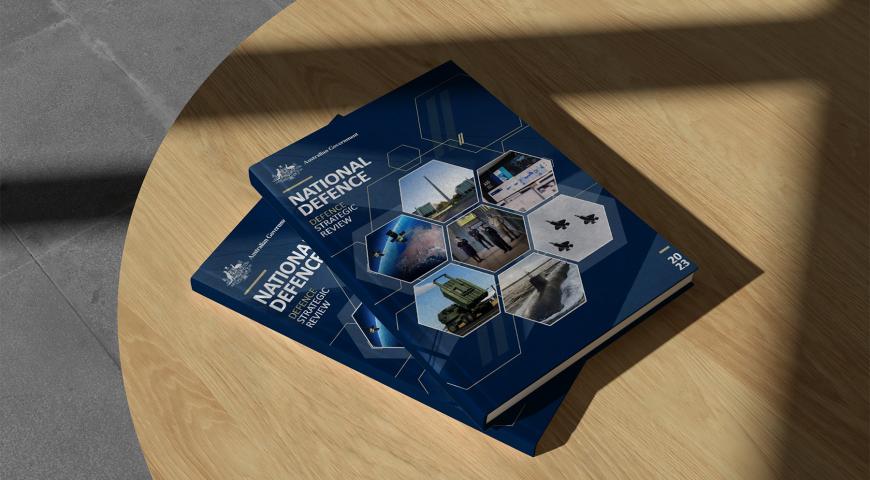Treading The Straight and Narrow Path: The Value of Civics Education in Defence
Australia is justifiably known as ‘the lucky country’, blessed not only with natural beauty and resources, but also one of the most successful democracies in modern history. However, we often fall short in educating Defence members about Australian civics and other political systems, which can be a valuable asset in their service to our nation.
A decade ago, the ADF was at the height of its involvement in security and stabilisation operations in Afghanistan, where poor governance and corruption were endemic. Military commanders and civilian policy advisors[1] had to navigate morally and ethically ambiguous situations, from planning elections, to distributing aid and wrangling local militias. In such a fraught environment, our people often had to balance upholding civic principles against tactical expedience: was it better to work through flawed government institutions, or local warlords?
Indeed, the utilitarian approach will always hold powerful sway in Defence. But, as Euan Graham points out in a recent article, ‘pragmatism lacks a moral compass’. He adds: ‘without a corresponding set of values, it risks drawing us into unprincipled ‘transactionalism’. The 2017 foreign policy white paper states that ‘Australia is pragmatic’, but also ‘a determined advocate of liberal institutions, universal values and human rights.’[2]
Fast forward to 2020, and the need for civics education is no less pressing at a time when the COVID19 pandemic and populist politics are straining the limits of democratic systems worldwide. The inner workings of Australia’s federation have been laid bare – for better or for worse – as our Commonwealth and State/Territory governments juggle the legion public health and economic problems. Western electorates are increasingly polarised and distrustful of political systems, with worrying implications for those charged with defending the nation.
Instead, Defence people must understand that our corpus of laws, traditions, norms and principles form the bedrock of our nation, transcending parties and personalities. Moreover, the Australian public and Government will expect the ADF to contribute more and more to domestic security and relief operations, as seen during the 2019/20 bushfires. Therefore, healthy civil-military relationships are as important as ever.[3]
Pandemics and bushfires aside, our Government is promoting Australia as a ‘security partner of choice’ through its ‘Pacific Step-Up’. Defence is engaged in our region, through a range of operations and activities, on a breadth and scale unmatched in this century. This is not a politics-free or values-neutral zone: our region contains a mix of ‘authoritarian regimes’, ‘flawed democracies’ or ‘hybrid regimes’, as well as ‘full democracies’.[4] Interacting with foreign personnel can actually underscore the political and social differences with our neighbours. During my command and staff course year, I had to repeatedly assert to my PLA classmate that my Chinese ethnicity did not transcend loyalty to Australia and my uniform, and I was very much a ‘westerner’ despite my looks.
The trajectories of our bilateral defence relationships are often directed by political changes in those countries. The ADF’s engagement with the Indonesian Armed Forces (TNI) has become more comprehensive and meaningful in the post-Suharto demokrasi era. Our defence engagement with Fiji took a sharp turn when the military took over government in 2006, before a gradual normalisation of our relationship in recent years. Therefore, when our forces sally forth into the Indo-Pacific we are, by default, also instruments of policy and ambassadors for the rule of law, universal suffrage, and civilian control over the military.
‘The greatest argument against democracy is five minutes spent in conversation with the average voter’
Sir Winston Churchill
Put simply, Defence members are in a poor position to assist and engage with foreign governments and militaries if they do not first understand our own system of government and the vital importance of these principles. They cannot rely on the easy-going Australian stereotype to promote our agenda. In the words of MAJGEN Jim Molan (ret’d): “We either stand for the rule of law, or we stand for nothing.” [5]
Sadly, Australians tend to have a poor understanding of our political system that has protected our individual rights and helped allow our nation to flourish.
Civics education enhances a strong, well-rounded moral and ethical framework for all ranks that will span across their whole careers. Looking past our regional engagement, future expeditionary operations will likely grapple with popular discontent, corruption and low host-nation capacity. Our operational-level staff may need to design campaigns to assist flawed or failing states. And our strategic leaders will need to advise ministers and their staffs, as well as deftly managing bilateral defence relationships.
“…the hardest part of your service is the spiritual – the deep, soul-turning readjustments and re-evaluations necessary to metamorphise a potential citizen into one in being” (sic)
Robert A. Heinlein, from Starship Troopers[6]
The introduction of the Joint Professional Military Education Continuum in 2019 provides both a prime opportunity and foundation upon which to incorporate civics education. Civics is weaved through two of the Core Professional Areas of Study and their subordinate topics. The National Security Policy and Strategy area of study covers: Strategy – Theory & Practice, National Security & Intelligence, Civil-Military Relations, Communication with Government, Working with Government and Ministers, and Inter-agency Collaboration. The Command, Leadership and Ethics area of study includes: the Profession of Arms, Military Values and Characteristics, Leadership, Command & Control, Ethics and the Moral Component of War, the Law of Armed Conflict, and Management and Business in Defence.
At JPME&T Levels 1 and 2 (Tactical), Australian civics could be delivered as formal or informal instruction for junior NCOs and Officers. At this level, we should inform and build their understanding of Australia’s political system. This could include: the tenets of the Westminster system of government (the role of the different branches of government and the separation of powers, the Australian Federation and the division of powers between the Commonwealth and the States/Territories, the role of Cabinet, the PM and the Governor-General), and key points of the Australian Constitution and the Defence Act, and how civilian control over the ADF is exercised.[7]
“Indeed it has been said that democracy is the worst form of government except for all those that have been tried from time to time…”
Sir Winston Churchill
At JPME&T Level 3, Defence learners should build upon their knowledge of the Australian system of government and progress to applied and comparative civics. This will help equip learners with the tools and framework to assess, contextualise and understand other systems of government, when they deploy on overseas operations or take part in defence international engagement. This is important for understanding our own allies, let alone third countries. When I was on exchange in the Pentagon writing governance assessments on Afghanistan, I found myself debating US colleagues over the relative merits of the Westminster parliamentary system versus the Jeffersonian presidential system. Learners could be taught the history and evolution of western liberalism and democracy, including the shared values between Australia and other democracies.
To understand our neighbours, we should give Defence learners an overview of the other forms of government that exist in our region, and the role of the military in those countries. In particular, our members must understand the influence that geography, history, religion and culture wield over the politics and military of those countries. Furthermore, a study of Asian democratic movements will be especially instructive, since they resulted in major changes to the role of the armed forces (for example, the Philippines in 1986, Republic of Korea in the 1990s, Indonesia in the demokrasi period from 1998 to the present). Even ostensibly benign humanitarian assistance missions, like Op INDONESIA ASSIST 2018, needed a nuanced understanding of the dynamics and tensions between the various military, police and civil agencies in Indonesia.
ADF members deploying on UN, observer or stabilisation operations in post-conflict countries could study specific topics such as electoral systems or the demobilisation of former combatants. Elections are often major ‘hinge’ events in post-conflict countries, and the details matter: ask any NATO planner who has had to grapple with the intricacies of the single non-transferrable vote system in Afghanistan. Similarly, demobilising large numbers of ex-militants is one of the hardest things any nation can endure – studying the experiences of countries like Timor L’Este can be vital to an observer mission or peace operation.
Conclusion
As members of Defence, we are the ultimate guarantors of our political freedoms and system of government. It is only right and fitting that we know and understand the object for which we may have to defend. In all the operational deployments and countless international engagements of my career, politics and governance have always been topics of contention and comparison. Likewise, our regional and global engagement will increasingly contrast Australian democracy with other political systems. Cultural awareness alone will not adequately guide the actions of our leaders and soldiers in ambiguous situations. We must know and understand ourselves, in an honest and sober light, and forge our civics knowledge in the fire of discussion and comparison. Then might our people be fully-equipped to represent Australia and our values to a watching and expectant region.
Image credit: ID 162397327 © Setiawanarief111 | Dreamstime.com
[1] ‘Commissars’, as a Bulgarian officer humorously quipped to an Australian POLAD during an Iraq deployment
[2] Euan Graham, ‘The Pitfalls of Pragmatism in Australian Strategic Policy’, ASPI The Strategist, 27 Feb 2020
[3] Professor Samuel Huntington’s The Soldier and the State (Belknap Press: 1981), is still the defining work on civil-military relationships.
[4] The Economist Intelligence Unit – Democracy Index 2018
[5] MAJGEN Jim Molan (ret’d), Running the War in Iraq, (2008)
[6] Robert A. Heinlein, Starship Troopers, (1959)
[7] A fellow Army officer who was a SQN OC at ADFA conducted his own civics education program for his second and third year cadets, and took them on a field trip to Parliament House.
Please let us know if you have discovered an issue with the content on this page.
Comments
Start the conversation by sharing your thoughts! Please login to comment. If you don't yet have an account registration is quick and easy.




